- Home
- L. Frank Baum
Aunt Jane's Nieces and Uncle John Page 3
Aunt Jane's Nieces and Uncle John Read online
Page 3
CHAPTER III
MYRTLE DEAN
"We were due in Denver three hours ago, and it's an hour's run or moreyet," remarked Beth De Graf, walking briskly up and down the platformof a way station where the train had stopped for orders.
"And it's beginning to snow," observed Patricia Doyle, beside her."I'm afraid this weather isn't very propitious for an automobiletrip."
"Uncle John doesn't worry," said Beth. "He believes there is perpetualsunshine west of Denver."
"Yes; a man named Haggerty told him. But you'll notice that Daddydoesn't seem to believe the tale. Anyhow, we shall soon know thetruth, Beth, and the trip is somewhat on the order of a voyage ofdiscovery, which renders it fascinating to look forward to. There issuch fun in not knowing just what is going to happen next."
"When one travels with Uncle John," returned Beth, smiling, "sheknows exactly--nothing. That is why I am always eager to accept if heinvites me to go anywhere with him."
The passengers thronging the platform--"stretching their legs" afterthe confinement of the tedious railway journey--eyed these two girlsadmiringly. Beth was admitted a beauty, and one of the societyjournals had lately announced that she had few peers in all the greatmetropolis. Chestnut brown hair; dark, serious and steady eyes; anexquisite complexion and rarely regular features all conspired torender the young girl wonderfully attractive. Her stride was athletic,free and graceful; her slender form well poised and dignified. Patsy,the "plug-ugly," as she called herself, was so bright and animated andher blue eyes sparkled so constantly with fun and good humor, thatshe attracted fully as much attention as her more sedate and morebeautiful cousin, and wherever she went was sure to make a host offriends.
"See!" she cried, clasping Beth's arm; "there is that lovely girl atthe window again. I've noticed her ever since the train left Chicago,and she is always in the same seat in that tourist coach. I wonder whyshe doesn't get out for a bit of fresh air now and then."
Beth looked up at the fair, girlish face that gazed wistfully fromthe window. The unknown seemed very young--not more than fourteen orfifteen years of age. She wore a blue serge suit of rather coarseweave, but it was neat and becoming. Around the modest, sweet eyeswere deep circles, denoting physical suffering or prolonged worry; yetthe lips smiled, wanly but persistently. She had evidently noticedUncle John's two nieces, for her eyes followed them as they marchedup and down the platform and when Patsy looked up and nodded, a softflush suffused her features and she bowed her head in return.
At the cry of "all aboard!" a scramble was made for the coaches andBeth and Patsy, re-entering their staterooms, found their Uncle andthe Major still intent upon their interminable game of cribbage.
"Let's go back and talk to the girl," suggested Patsy. "Somehow,the poor thing seems lonely, and her smile was more pathetic thancheerful."
So they made their way through the long train to the tourist coach,and there found the girl they were seeking. The surrounding seats wereoccupied by groups of passengers of rather coarse caliber, many beingforeign laborers accompanied by their wives and children. The air inthe car was close and "stuffy" and the passengers seemed none too neatin their habits and appearance. So the solitary girl appeared like arose blooming in a barnyard and her two visitors were instantly sorryfor her. She sat in her corner, leaning wearily against the back ofthe cane seat, with a blanket spread over her lap. Strangelyenough the consideration of her fellow passengers left the girl inundisturbed possession of a double seat.
"Perhaps she is ill," thought Patsy, as she and Beth sat down oppositeand entered into conversation with the child. She was franklycommunicative and they soon learned that her name was Myrtle Dean, andthat she was an orphan. Although scarcely fifteen years of age shehad for more than two years gained a livelihood by working in a skirtfactory in Chicago, paying her board regularly to a cross old aunt whowas her only relative in the big city. Three months ago, however, shehad met with an accident, having been knocked down by an automobilewhile going to her work and seriously injured.
"The doctors say," she confided to her new friends, "that I shallalways be lame, although not quite helpless. Indeed, I can creeparound a little now, when I am obliged to move, and I shall get betterevery day. One of my hips was so badly injured that it will never bequite right again, and my Aunt Martha was dreadfully worried for fearI would become a tax upon her. I cannot blame her, for she has reallybut little money to pay for her own support. So, when the man who ranover me paid us a hundred dollars for damages--"
"Only a hundred dollars!" cried Beth, amazed.
"Wasn't that enough?" inquired Myrtle innocently.
"By no means," said Patsy, with prompt indignation. "He should havegiven you five thousand, at least. Don't you realize, my dear, thatthis accident has probably deprived you of the means of earning alivelihood?"
"I can still sew," returned the girl, courageously, "although ofcourse I cannot get about easily to search for employment."
"But why did you leave Chicago?" asked Beth.
"I was coming to that part of my story. When I got the hundred dollarsAunt Martha decided I must use it to go to Leadville, to my UncleAnson, who is my mother's only brother. He is a miner out there, andAunt Martha says he is quite able to take care of me. So she bought myticket and put me on the train and I'm now on my way to Leadville tofind Uncle Anson."
"To _find_ him!" exclaimed Patsy. "Don't you know his address?"
"No; we haven't had a letter from him for two years. But Aunt Marthasays he must be a prominent man, and everybody in Leadville will knowhim, as it's a small place."
"Does he know you are coming?" asked Beth, thoughtfully.
"My aunt wrote him a letter two days before I started, so he oughtto receive it two days before I get there," replied Myrtle, a littleuneasily. "Of course I can't help worrying some, because if I failedto find Uncle Anson I don't know what might happen to me."
"Have you money?" asked Beth.
"A little. About three dollars. Aunt gave me a basket of food to lastuntil I get to Leadville, and after paying for my ticket and takingwhat I owed her for board there wasn't much left from the hundreddollars."
"What a cruel old woman!" cried Patsy, wrathfully. "She ought to behorsewhipped!"
"I am sure it was wrong for her to cast you off in this heartlessway," added Beth, more conservatively.
"She is not really bad," returned Myrtle, the tears starting to hereyes. "But Aunt Martha has grown selfish, and does not care for mevery much. I hope Uncle Anson will be different. He is my mother'sbrother, you know, while Aunt Martha is only my father's sister, andan old maid who has had rather a hard life. Perhaps," she added,wistfully, "Uncle Anson will love me--although I'm not strong orwell."
Both Patsy and Beth felt desperately sorry for the girl.
"What is Uncle Anson's other name?" asked the latter, for Beth wasthe more practical of Uncle John's nieces and noted for her clearthinking.
"Jones. Mr. Anson Jones."
"Rather a common name, if you have to hunt for him," observed thequestioner, musingly. "Has he been in Leadville long?"
"I do not know," replied Myrtle. "His last letter proved that he wasin Leadville two years ago, and he said he had been very successfuland made money; but he has been in other mining camps, I know, and haswandered for years all over the West."
"Suppose he should be wandering now?" suggested Patsy; but at the lookof alarm on Myrtle's face she quickly changed the subject, saying:"You must come in to dinner with us, my dear, for you have had nothingbut cold truck to eat since you left Chicago. They say we shall be inDenver in another hour, but I'm afraid to believe it. Anyhow, there isplenty of time for dinner."
"Oh, I can't go, really!" cried the girl. "It's--it's so hard for meto walk when the train is moving; and--and--I wouldn't feel happy inthat gay, luxurious dining car."
"Well, we must go, anyway, or the Major will be very disagreeable,"said Patsy. "Good-bye, Myrtle; we shall see you again before we leavethe train.
"
As the two girls went forward to their coach Beth said to Patsy:
"I'm afraid that poor thing will be greatly disappointed when she getsto Leadville. Imagine anyone sending a child on such a wild goosechase--and an injured and almost helpless child, at that!"
"I shudder to think what would become of her, with no uncle to carefor her and only three dollars to her name," added Patsy. "I havenever heard of such an inhuman creature as that Aunt Martha, Beth. Ihope there are not many like her in the world."
At dinner they arranged with the head waiter of the dining car to sendin a substantial meal, smoking hot, to Myrtle Dean, and Patsy herselfinspected the tray before it went to make sure everything was therethat was ordered. They had to satisfy Uncle John's curiosity at thisproceeding by relating to him Myrtle Dean's story, and the kindlylittle man became very thoughtful and agreed with them that it was acruel act to send the poor girl into a strange country in search of anuncle who had not been heard of in two years.
When the train pulled into the station at Denver the first care ofJohn Merrick's party was to look after the welfare of the lame girl.They got a porter to assist her into the depot waiting room and thenUncle John inquired about the next train for Leadville, and found itwould not start until the following morning, the late overland trainhaving missed that day's connections. This was a serious discovery forpoor Myrtle, but she smiled bravely and said:
"I can pass the night in this seat very comfortably, so please don'tworry about me. It is warm here, you know, and I won't mind a bit thesitting up. Thank you all very much for your kindness, and good-bye.I'll be all right, never fear."
Uncle John stood looking down at her thoughtfully.
"Did you engage a carriage, Major?" he asked.
"Yes; there's one now waiting," was the reply.
"All right. Now, then, my dear, let's wrap this blanket around youtight and snug."
"What are you going to do?" asked Myrtle with a startled look.
"Carry you outside. It's pretty cold and snowy, so we must wrap you up.Now, Major, take hold on the other side. Here we go!"
Patsy smiled--rather pitifully--at the expression of bewilderment onMyrtle's face. Uncle John and the Major carried her tenderly to acarriage and put her in the back seat. Patsy sprang in next, withMumbles clasped tightly in her arms, the small dog having been forcedto make the journey thus far in the baggage car. Beth and the Majorentered the carriage next, while Uncle John mounted beside the driverand directed him to the Crown Palace Hotel.
It was growing dark when they reached the dingy hostelry, which mighthave been palatial when it was named but was now sadly faded andtawdry. It proved to be fairly comfortable, however, and the firstcare of the party was to see Myrtle Dean safely established in a cosyroom, with a grate fire to cheer her. Patsy and Beth had adjoiningrooms and kept running in for a word with their protege, who wasso astonished and confused by her sudden good fortune that she wasincapable of speech and more inclined to cry than to laugh.
During the evening Uncle John was busy at the telegraph booth. He sentseveral messages to Leadville, to Anson Jones, to the Chief of Policeand to the various hotels; but long before midnight, when the lastreplies were received, he knew that Anson Jones had left Leadvillefive months ago, and his present whereabouts were unknown. Havinglearned these facts the little man went to bed and slept peacefullyuntil morning.
Myrtle had begged them to see that she was called at five o'clock,that she might have ample time to get to the depot for her train, butno one called her and the poor child was so weary and worn with hertrip that the soft bed enthralled her for many hours after daybreak.
Patsy finally aroused her, opening the blinds to let in the sunshineand then sitting beside Myrtle's bed to stroke her fair hair and tellher it was nearly noon.
"But my train!" wailed the girl, greatly distressed.
"Oh, the train has gone hours ago. But never mind that, dear. UncleJohn has telegraphed to Leadville and found that Anson Jones isnot there. He left months ago, and is now wandering; in fields andpastures unknown."
Myrtle sat up in bed and glared at Patsy wild-eyed.
"Gone!" she said. "Gone! Then what am I to do?"
"I can't imagine, dear," said Patsy, soothingly. "What do you thinkyou will do?"
The girl seemed dazed and for a time could not reply.
"You must have thought of this thing," suggested her new friend, "forit was quite possible Anson Jones would not be in Leadville when youarrived there."
"I did not dare think of it," returned Myrtle in a low, frightenedtone. "I once asked Aunt Martha what I could do in case Uncle Ansonwasn't to be found, and she said he _must_ be found, for otherwise Iwould be obliged to earn my own living."
"And she knew you to be so helpless!"
"She knows I can sew, if only I can get work to do," said the girl,simply. "I'm not really a cripple, and I'm getting better of my hurtevery day. Aunt Martha said I would be just as well off in Denver orLeadville as in Chicago, and made me promise, if the worst came, notto let any charitable organization send me back to her."
"In other words," exclaimed Patsy, indignantly, "she wanted to get ridof you, and did not care what became of you."
"She was afraid I would cost her money," admitted the poor child, withshamed, downcast eyes.
Patsy went to the window and stood looking out for a time. Myrtlebegan to dress herself. As she said, she was not utterly helpless,moving the upper part of her body freely and being able to walk slowlyabout a room by holding on to chairs or other furniture.
"I'm afraid I'm causing you a lot of worry over me," said she, smilingsadly as Patsy turned toward her; "and that is ungrateful when Iremember how kind you have all been. Why, these hours since I met youhave seemed like fairyland. I shall treasure them as long as I live.There must be another train to Leadville soon, and I'll take that. Assoon as I am ready I will go to the depot and wait there."
Patsy looked at her reflectively. The poor child was called upon tosolve a queer problem--one which might well have bewildered the brainof a more experienced person.
"Tell me," she said; "why should you go to Leadville at all, now thatyou have no friend or relative there to care for you?"
"My ticket is to Leadville, you know," replied Myrtle. "If I did notgo I would waste the money it cost."
Patsy laughed at this.
"You're a wonderfully impractical child," she said, deftly assistingMyrtle to finish dressing. "What you really need is some one to orderyou around and tell you what to do. So you must stop thinking aboutyourself, for a time, and let _us_ do the thinking. Here--sit in thischair by the window. Do you want Mumbles in your lap? All right. Nowgaze upon the scenery until I come back. There's a man washing windowsacross the street; watch and see if he does his work properly."
Then she went away to join a conference in Uncle John's sitting room.Major Doyle was speaking when she entered and his voice was coldlyironical.
"The temperature outside is six degrees above freezing," he observed."The clerk downstairs says the snow is nine feet deep over themountain trails and the wind would cut an iron beam in two. If youtake an automobile to California, John, you must put it on snowshoesand connect it with a steam heating-plant."
Uncle John, his hands thrust deep in his pockets, paced thoughtfullyup and down the room.
"Haggerty said--"
"Didn't I give you Haggerty's record, then?" asked the Major. "Ifyou want the exact truth it's safe to go directly opposite to whatHaggerty says."
"He's a very decent fellow," protested Mr. Merrick, "and is consideredin the city to be strictly honest."
"But after this?"
"You can't blame him for the weather conditions here. I've beentalking with Denver people myself, this morning, and they all sayit's unusual to have such cold weather at this time of year. Thethermometer hasn't been so low in the past twenty-six years, thenatives say."
"Are they all named Haggerty?" asked the Major, scornfully.<
br />
"If you will kindly allow me to speak, and tell you what Haggertysaid," remarked Uncle John tersely, "I shall be able to add to yourinformation."
"Go ahead, then."
"Haggerty said that in case we ran into cold weather in Denver, whichwas possible--"
"Quite possible!"
"Then we had best go south to Santa Fe and take the route of the oldSanta Fe Trail as far as Albuquerque, or even to El Paso. Either waywe will be sure to find fine weather, and good roads into California."
"So Haggerty says."
"It stands to reason," continued Mr. Merrick, "that on the Southernroute we will escape the severe weather. So I have decided to adoptthat plan."
"I think you are quite wise in that," broke in Patsy, before herfather could object.
"All those queer Spanish names sound interesting," said Beth. "When dowe start, Uncle?"
"In a day or two. I have some things here to attend to that may delayus that long. But when once we are started southward we shall bowlalong right merrily."
"Unless we run into more snowstorms." Of course it was the Major whosaid that, and pointedly ignoring the remark Uncle John turned toPatsy and said:
"How did you find Myrtle Dean this morning?"
"She is rested, and seems very bright and cheerful, Uncle; but ofcourse she is much distressed by the news that her Uncle Anson hasvanished from Leadville. Yet she thinks she will continue her journeyby the next train, as she has paid for her ticket and can't afford towaste the money."
"It would be absurd for the child to go to Leadville on that account.A mining camp is no place for such a frail thing," returned Mr.Merrick. "What would you suggest, Patsy?"
"Really, Uncle John, I don't know what to suggest."
"She can never earn her living by sewing," declared Beth. "What sheought to have is a trained nurse and careful attention."
"I'll have a doctor up to look her over," said Uncle John, in hisdecisive way. He was a mild little man generally, but when he made uphis mind to do a thing it was useless to argue with him. Even MajorDoyle knew that; but the old soldier was so fond of arguing forthe sake of argument, and so accustomed to oppose his wealthybrother-in-law--whom he loved dearly just the same--that he waswilling to accept defeat rather than permit Mr. Merrick to act withoutprotest.

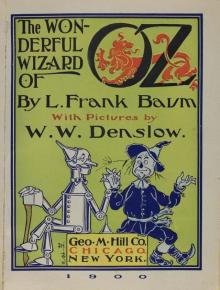 The Wonderful Wizard of Oz
The Wonderful Wizard of Oz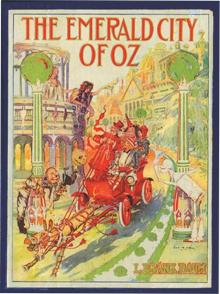 The Emerald City of Oz
The Emerald City of Oz The Story of Peter Pan, Retold from the fairy play by Sir James Barrie
The Story of Peter Pan, Retold from the fairy play by Sir James Barrie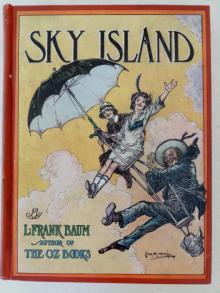 Sky Island
Sky Island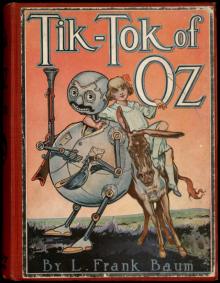 Tik-Tok of Oz
Tik-Tok of Oz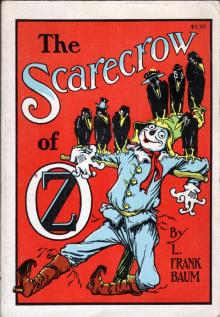 The Scarecrow of Oz
The Scarecrow of Oz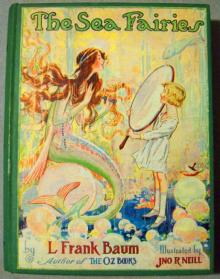 The Sea Fairies
The Sea Fairies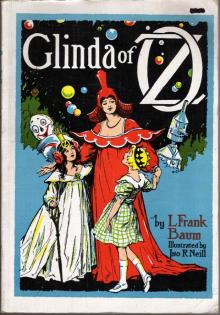 Glinda of Oz
Glinda of Oz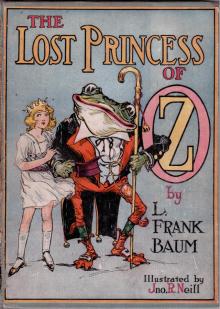 The Lost Princess of Oz
The Lost Princess of Oz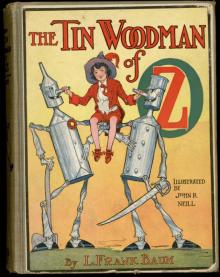 The Tin Woodman of Oz
The Tin Woodman of Oz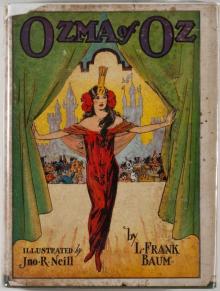 Ozma of Oz
Ozma of Oz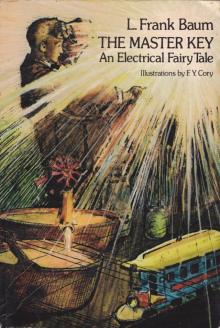 The Master Key
The Master Key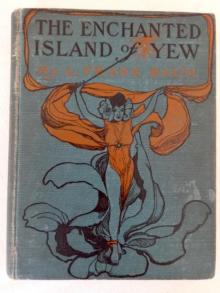 The Enchanted Island of Yew
The Enchanted Island of Yew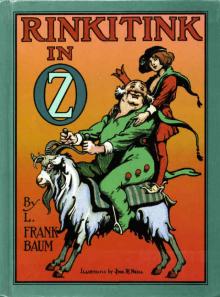 Rinkitink in Oz
Rinkitink in Oz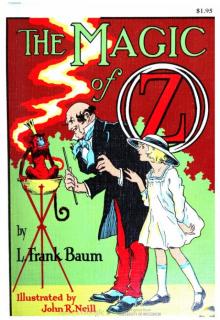 The Magic of Oz
The Magic of Oz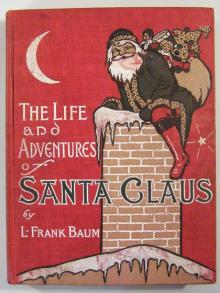 The Life and Adventures of Santa Claus
The Life and Adventures of Santa Claus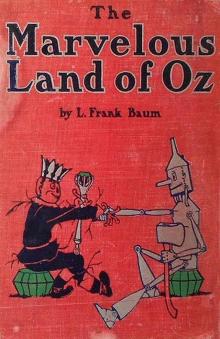 The Marvelous Land of Oz
The Marvelous Land of Oz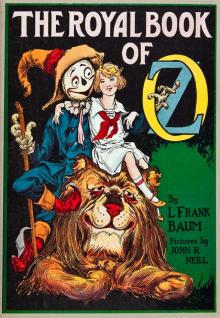 The Royal Book of Oz
The Royal Book of Oz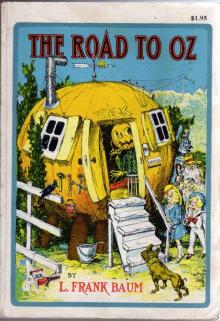 The Road to Oz
The Road to Oz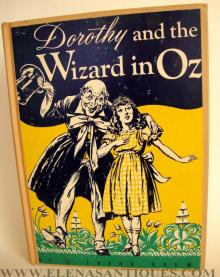 Dorothy and the Wizard in Oz
Dorothy and the Wizard in Oz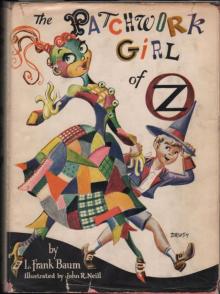 The Patchwork Girl of Oz
The Patchwork Girl of Oz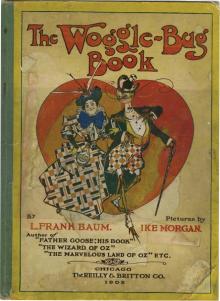 The Woggle-Bug Book
The Woggle-Bug Book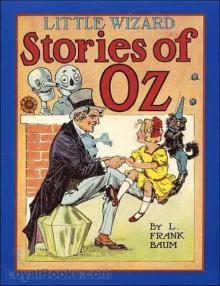 Little Wizard Stories of Oz
Little Wizard Stories of Oz Yankee in Oz
Yankee in Oz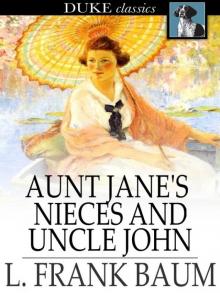 Aunt Jane's Nieces and Uncle John
Aunt Jane's Nieces and Uncle John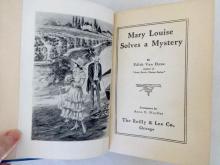 Mary Louise
Mary Louise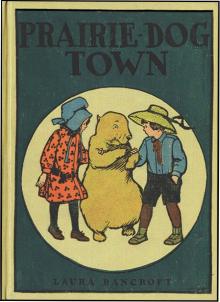 Prairie-Dog Town
Prairie-Dog Town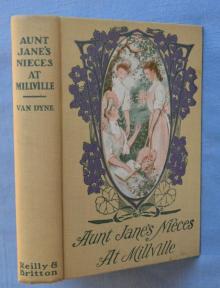 Aunt Jane's Nieces at Millville
Aunt Jane's Nieces at Millville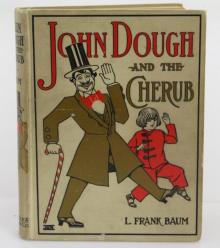 John Dough and the Cherub
John Dough and the Cherub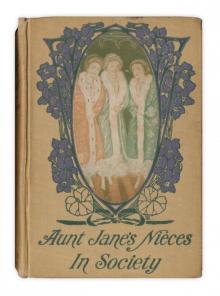 Aunt Jane's Nieces in Society
Aunt Jane's Nieces in Society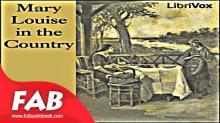 Mary Louise in the Country
Mary Louise in the Country Aunt Jane's Nieces Abroad
Aunt Jane's Nieces Abroad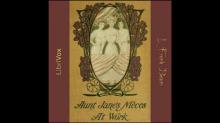 Aunt Jane's Nieces at Work
Aunt Jane's Nieces at Work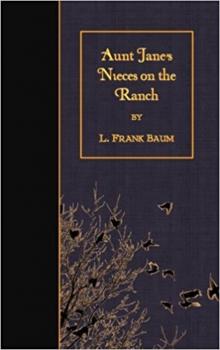 Aunt Jane's Nieces on the Ranch
Aunt Jane's Nieces on the Ranch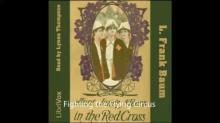 Aunt Jane's Nieces in the Red Cross
Aunt Jane's Nieces in the Red Cross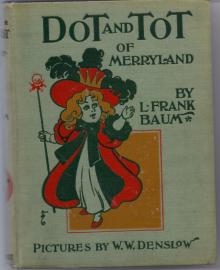 Dot and Tot of Merryland
Dot and Tot of Merryland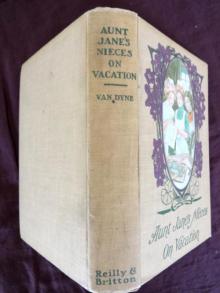 Aunt Jane's Nieces on Vacation
Aunt Jane's Nieces on Vacation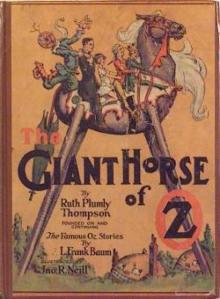 The Giant Horse Of Oz
The Giant Horse Of Oz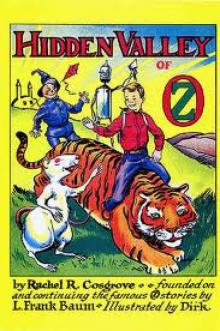 The Hidden Valley of Oz
The Hidden Valley of Oz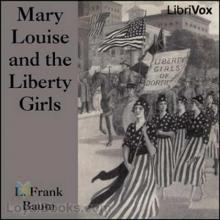 Mary Louise and the Liberty Girls
Mary Louise and the Liberty Girls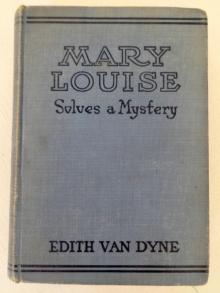 Mary Louise Solves a Mystery
Mary Louise Solves a Mystery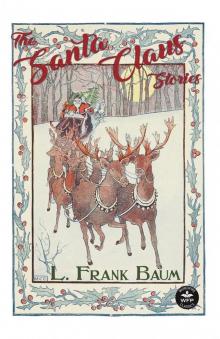 The Santa Claus Stories
The Santa Claus Stories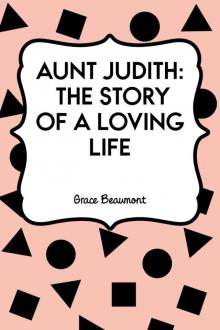 Aunt Judith: The Story of a Loving Life
Aunt Judith: The Story of a Loving Life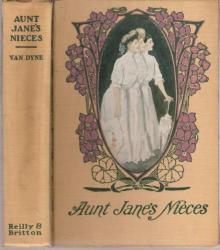 Aunt Jane's Nieces
Aunt Jane's Nieces Wonderful Wizard of Oz (Barnes & Noble Classics Series)
Wonderful Wizard of Oz (Barnes & Noble Classics Series) Oz, The Complete Collection
Oz, The Complete Collection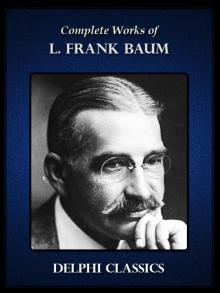 Complete Works of L. Frank Baum
Complete Works of L. Frank Baum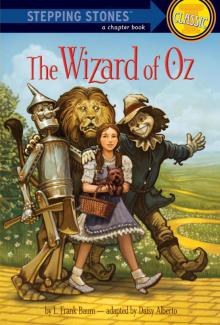 The Wizard of Oz
The Wizard of Oz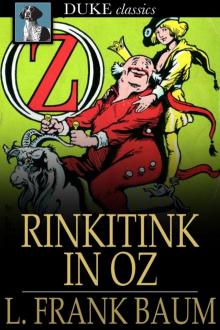 Oz 10 - Rinkitink in Oz
Oz 10 - Rinkitink in Oz